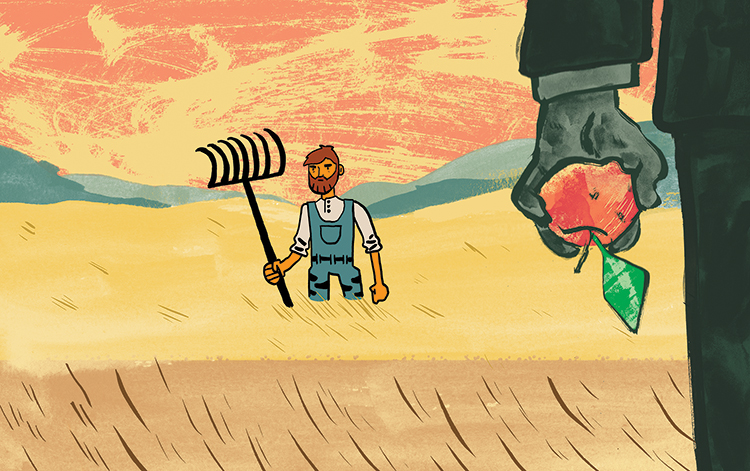Don’t be fooled by stores with a global supply chain that claim to be ‘farmers markets’
By Danie Greenwell
Walk into a supermarket and you will find yourself caught up in a whirl of “local,” “organic” and “farm fresh” merchandising. These words are intended to make us feel better about our purchases, but it is clear they have lost meaning.
Shifts in meaning, grammar and syntax are to be expected, but words are also intentionally misused by marketers to sell products. There was a point when the term “local food” had a clear(ish) definition: It was food grown on small, family owned farms and transported short distances by the farmers or by small distributors who kept the growers’ best interests in mind.
Bypassing large corporations meant farmers saw a greater share of the proceeds, which allowed for the preservation of family farmland and a system that strengthened the local economy.
But once “local food” became popular, marketers from huge frozen-food companies with global supply chains wanted in, and the market was flooded with false advertising. Suddenly, those of us who spent years promoting “local” found ourselves on the defensive—we had to explain why our food is different, because the phrase that started the movement had been devalued.
Another phrase being devalued is “farmers market.” According to the United States Department of Agriculture, a farmers market is “two or more farmer-producers that sell their own agricultural products directly to the general public at a fixed location, which includes fruits and vegetables, meat, fish, poultry, dairy products and grains.” According to state law in Maine, “‘farmers market’ means a building, structure or place used by two or more farmers for the direct sale of farm and food products to consumers.” The statute includes a list of agricultural categories. Sadly, we have no such legal protection for farmers in Pennsylvania, Delaware or New Jersey.
In Philadelphia, a farmers market could be a weekly outdoor market that fits the current USDA definition, the 9th Street Italian Market, the Reading Terminal Market, an organic grocery store or even a truck parked on the side of the road filled with boxes of produce grown in South America.
You may ask why it is important that farmers markets remain producer-only markets.
Not doing so means that customers have no idea where their food was grown, the farmers have not been paid a fair value for their products and the products are of lower quality. To travel thousands of miles, products are picked unripe and ripened artificially. They pass through multiple hands and risk contamination at each handling point. Nutrients and vitamins are lost during shipment and storage.
These foods are more healthful than heavily processed ones, but companies should promote their produce without devaluing the term “farmers market.”
There will soon be a new chain grocery store in South Philadelphia. The store’s title inaccurately uses the term “farmers market.” There are no farmers at the store, and the people selling food were not involved in its production. And this store is not the only one appropriating the term for its own benefit. In my research, I found several regional markets and bazaars with the name “farmers market” in their title that had few or no farmers.
Informed consumers realize stores that use “farmers market” in their branding misrepresent their commitment to farmers. But there are plenty of shoppers who do not. Farm to City’s efforts to promote farmers markets as lucrative venues for growers have been devalued to create more profits for companies that do not give farmers ethical prices for their products. In turn, farmers currently making income to support their families and maintain their farmland may lose that ability if real farmers markets go under.
There are actions you can take to make changes. Start by contacting companies that inaccurately label themselves farmers markets and have them explain why they are engaging in false advertising. You can also contact local and state representatives and ask for a statute to protect the term. Educating yourself is also key: Learn phrases related to the local food movement and insist on their accurate use. Finally, shop at a real farmers market and meet the people who grow the food you feed to your family.
The more you shop at the farmers market, the easier it is to pick out who is honestly selling you locally grown food from small family farms, and who is simply trying to cash in on the local food movement.
Danie Greenwell works with Farm to City, a business whose mission is to “unite communities, families and farmers year-round through good, locally grown food.”









